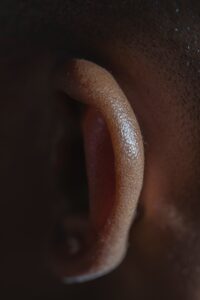How Frequently Should I Have My Hearing Checked
How Frequently Should I Have My Hearing Checked: Several factors influence when and how frequently you should have your hearing tested. Do you believe you have hearing loss? Or do you already have a hearing loss that has been documented?
Your age and employment are also crucial considerations.
Hearing loss testing vs screening
A hearing test is done if you, a loved one, or a medical expert suspect that you have hearing loss.
During a test, you will sit in a soundproof booth, and your hearing will be assessed and recorded in an audiogram. Professionals often call this a “complete hearing test” type of test.
A screening is typically faster and less complicated than a test that requires the completion of a questionnaire, such as our online hearing exam.
If you work in an environment with high noise levels, you may be required to participate in a hearing screening programme.
If you have proven hearing loss,
If you already know you have hearing loss, which earlier tests have confirmed, you should be retested regularly, as agreed upon with your hearing care specialist.
Why? Hearing loss is dynamic, which means it evolves. However, changes can be so subtle that you may not even notice them. ( Hearing loss is usually progressive, which worsens over time.
Hearing aids must also be examined.
If you use a hearing aid, keep in mind that it will need to be adjusted at some point. You may even require a new pair if your hearing loss has advanced from mild to severe or if your hearing aids have become outdated and no longer function properly.
A hearing aid’s lifespan is typically three to seven years, and technology is constantly improving. Do your hearing aids, for example, include these four essential features?
This schedule may alter if you have a cochlear implant or bone-anchored hearing aid.
Screening for additional vulnerable groups
Hearing loss is frequently screened in newborns, babies, and school-age children. What about the adults?
Young and middle-aged adults with no hearing difficulties usually do not require annual hearing screening.
However, two groups of persons should be tested for hearing loss at least once every few years:
Is it true that hearing loss worsens over time?
According to specialists, noise exposure is a common cause of gradual hearing loss.
Hearing aids cannot repair or even slow down the physical damage to your ears. They can, however, slow the loss of understanding, which is related to brain processing.
This implies that if you continuously wear appropriately fitted hearing aids, you will have fewer hearing impairments. On the other side, if you require hearing aids but do not utilise them, your speech comprehension will likely suffer.
What kinds of hearing loss deteriorate with time?
Sensorineural hearing loss during the ageing process
Sensorineural hearing loss is caused by irreversible injury to the inner ear, auditory nerve, or both. This category includes age-related hearing loss, often known as presbycusis. It deteriorates over time.
Noise is to fault in part. “Much of the presbycusis hearing loss is probably predominantly noise-related,” explains retired audiologist Jan Mayes. According to research, residents of places with less noise “had normal hearing thresholds into old life,” she adds.
Hearing loss from construction labour is entirely avoidable. More than half of American workers have not suffered noise-induced hearing loss, and one-fourth of those between the ages of 20 and 69 already have some hearing loss.
The noise could have been generated by listening to music too loudly through headphones, riding public transit, attending concerts or sporting events, or using power tools or gardening equipment.
Therefore, such a loss tends to mount up over time.
Hearing loss that occurs suddenly
If you experience sudden hearing loss, whether it happens all at once or within three days, see a doctor right away. This type of alteration is usually limited to one ear. Often, the precise cause is unknown.
Even though sensorineural hearing loss is the most prevalent, recovery of some degree of hearing is possible in just two weeks for nearly half of those affected. But don’t stop treatment because this window of opportunity will close in a month.
It happens when sound waves cannot reach the inner ear because of earwax, fluid, anatomical issues, or a punctured eardrum.
Why do older individuals have a worse hearing?
The leading causes are ageing and noise exposure, which affect both ears equally. The disease’s slow onset and progressive nature make it more likely that those close to you may notice the change before you do.
Presbycusis is generally inherited.
Furthermore, diseases that are more common in the elderly, such as diabetes, high blood pressure, heart disease, or a stroke, might impair hearing.
Medications might permanently damage the inner ear. They may be required to treat diseases more common in the elderly, such as cancer and heart disease.
Some types of hereditary hearing loss may manifest themselves in middle age. Otosclerosis, a condition in which the bones of the middle ear grow improperly, is one example.
As previously stated, noise-induced damage accumulates over time. This also applies to your chainsaw and lawnmower.
Wear headphones or earmuffs that safely increase the sounds you need to hear while minimising noise if you must utilise loud equipment.
Hearing devices can help prevent age-related hearing loss (presbycusis).
Depression and dementia can result from this.
One of the many reasons why it’s so important to take care of your remaining hearing is this. Hearing aids can merely magnify sounds; the brain is responsible for processing them.
Senior citizens
People aged 60 and up should undergo a baseline hearing test and a new test every few years. (We say “generally” because medical groups disagree on how often an elderly person with no symptoms should get their initial hearing test.) This is done to eliminate age-related hearing loss.
Employees that work in noisy environments
Even if you are under 60 and often expose yourself to sounds louder than 85 dB (see the table on our noise-induced hearing loss page), you should undergo a hearing test every few years.
This is because some drugs and illnesses, such as otosclerosis, can induce hearing loss in middle-aged and young adults.
Seek emergency assistance.
Hearing loss has an impact on your quality of life as well as your health.
While society often dismisses modest hearing loss as insignificant, it impacts every aspect of life, including brain health. Mild hearing loss is linked to cognitive deterioration.
Hearing aids, fortunately, have health benefits that offset many of these side effects.
Brought To You By – Ear Wax Removal Altrincham
The post How Frequently Should I Have My Hearing Checked appeared first on https://gqcentral.co.uk


Comments are closed